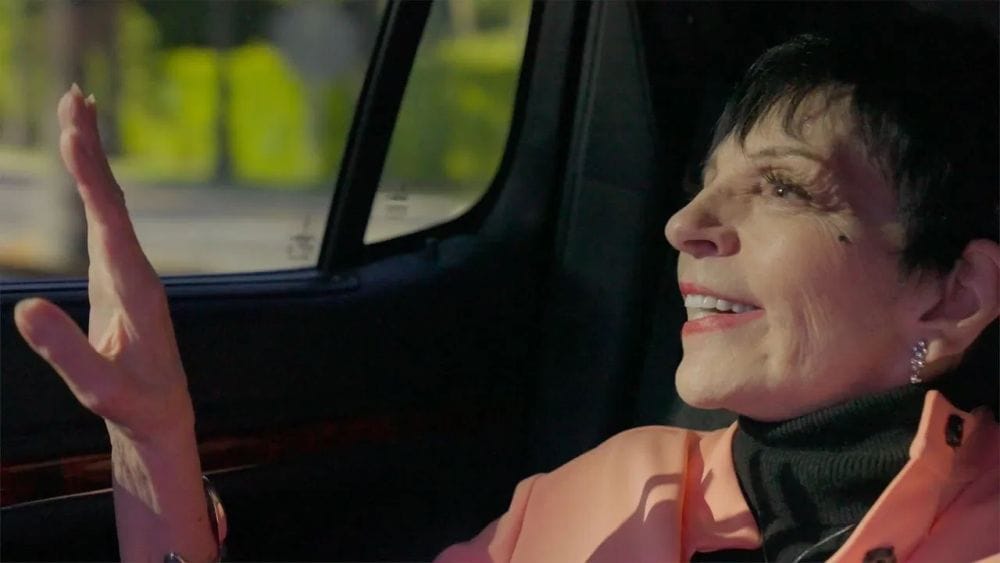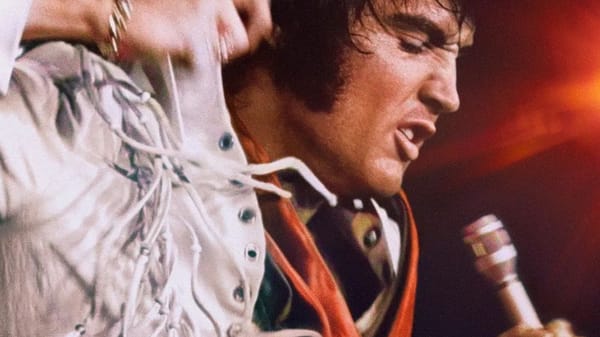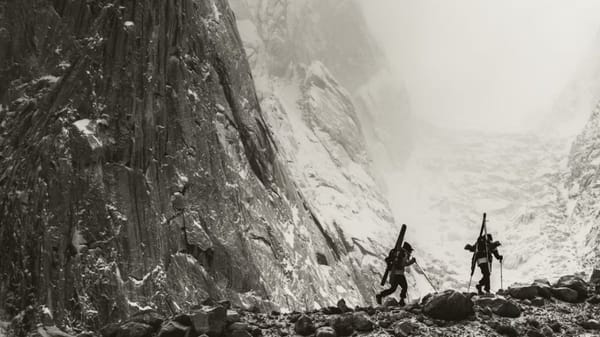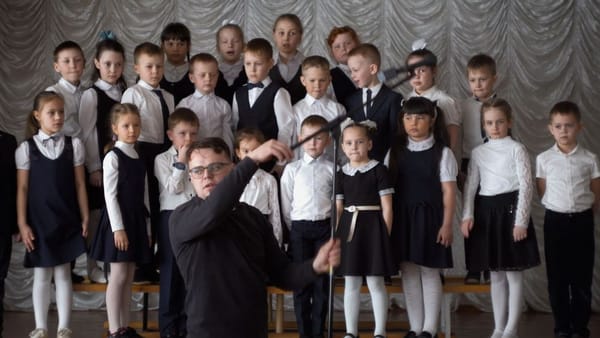Liza: A Truly Terrific Absolutely True Story (dir. Bruce David Klein)

Wilkommen, bienvenue, welcome.
As introductory lay-ups go, those famous lyrics from Bob Fosse’s Cabaret were too hard to refuse for me. It’s to the credit of director Bruce David Klein’s credit that he doesn’t always (does not always) succumb to such easy biographic impulses in Liza: A Truly Terrific Absolutely True Story. This is Klein’s fourth documentary across a particularly unexpected career and will no doubt bring him the most attention so far. It feels like a minor coup that he got Liza Minnelli herself to sit down for an interview; now at 79 years old she is clearly getting too frail for public preforming, but Klein captures her in delightfully good spirits. She channels her father in telling the crew where to hold the camera, and she often breaks out into song that made me sigh in delight. You probably already know whether you want to watch this movie or not.
The film begins quite literally with the press announcement of her birth. A beginning that made me take a stiff inhale. Oh, brother! Thankfully Klein with editors Alexander J. Goldstein and Jake Keene don’t turn this into a standard birth-to-death narrative (or, I guess, birth-to-old-age; Minnelli is thankfully still with us and dear god let her hang on for as long as she wishes for she has earned that!). Electing to forego a chronological retelling of her life, instead we get a collection of six themed sequences that propose to inform us about one of the performer’s many facets. It’s probably the keenest directorial choice that Klein makes in a documentary that is otherwise built for an audience who are likely already quite familiar with her life story.
We get the relationship with her mother (Judy Garland in case you’re somehow unaware) and, as it often was, Liza’s desire to not have the words “your mother” so consistently brought up in interviews and gossip articles. We get the pivotal affiliations with the likes of Kay Thompson (life mentor), Fred Ebb (career mentor best friend) and Halston (muse). We get the health battles and the similarities to Garland that inevitably came with him. We get the marriages and we get the heartbreak at never becoming a mother. Sometimes I gott he sense that it was being deliberately soft in those harsher areas (the drugs at Studio 54 for one), but it chooses a tone of loving comfort over anything else. No doubt, if you are a fan of Liza (or indeed, her collaborators with whom she was inextricably linked) then there is much to enjoy. Me, I am a big ol’ bundle-of-sticks for Ms Minnelli and would have ultimately been happy to just watch her sing for 100 minutes. Even if her voice is clearly not as sharp as it once was, that unique tone of hers, however, does not just vanish. And her classics remain classics for a reason.

It's just a small pity that Klein didn’t take more inspiration from his subject and let her talent shine just a little bit brighter. There isn’t necessarily anything wrong with much of her career not rating a mention, just don’t come here expecting much about her post-‘70s career. Very little about Martin Scorsese and New York, New York, no cackling memories of Rent-a-Cop, Sex and the City 2 or Stepping Out, nor anecdotes about working with the Pet Shop Boys on her late ‘80s chart breakout Results. And certainly not “Liza Minnelli Tries to Turn Off a Lamp”. It’s to be admired that they choose to focus on several strands of her life and career—keeping Liza herself very much front and centre—without the need to shoehorn every little part that some fans might wish.
But what is frustrating is when the film shortchanges viewers with what we do get the see. All too often, a clip of Liza performing one of her signature riffs get cut short for more talking heads from one of the old queens in her theatrical circle. Sometimes it works when it’s a jazzy intercut between Liza and Fred Ebb performing “Say Liza" (aka "Liza With a Z”), a sequence that has a wonderful secondary effect of making the viewer long for the days when a Broadway composer such as Ebb could be so much a part of the zeitgeist for no reason other than their talent, as well as just highlighting the sheer performative gusto required for that iconic song. Other times it cuts up great performances into tiny bits and pieces when simply allowing it to play out in an extended take would have been preferred. This is not unique to this Truly Terrific Absolutely True Story, of course. It is a frustratingly common trait of documentaries about artists to see their work get pulled apart. I don’t need her pianist’s opinion about what the meaning of a song’s lyrics are, you know? Or telling us why a performance was so iconic in the first place. Minnelli’s talents often does that plenty enough. Do we need cuts to Mia Farrow explaining the Liza that she knew away from the cameras? Not really.
But even then, the film has its charms. The chintziness is, well, kind of cheap, but it works. Liza was never too far from tacky, which was of course part of her appeal. The film mimics that with its sparkly on-screen texts to reflect the sequins that she was so famous for. Her big-eyed jazz-hands approach to performing is so often over-the-top that she can’t help but have a certain theatrical energy that follows her everywhere she goes and the doc has it, too. She was made to be the centre of attention on stage. Liza understands herself and she knows what people want and is happy to give it to them. She also appears eager to set her own record straight instead to letting a dramatisations of her life be the lasting memory of her.
Liza: A Truly Terrific Absolutely True Story is not a great documentary, but it’s one filled with warmth and generosity. Much like Liza herself. And if I have misgivings about these biography documentaries that we get so many of each year, the least I feel they can be is imbued with the spirit of their subject. And Liza has a spirit unlike any other. It’s what has carried her through life and it’s what carries this documentary to its lovely, heartfelt finale.
If you would like to support documentary and non-fiction film criticism, please consider donating by clicking the above link. Any help allows me to continue to do this, supports independent writing that is free of Artificial Intelligence, and is done purely for the love of it.



